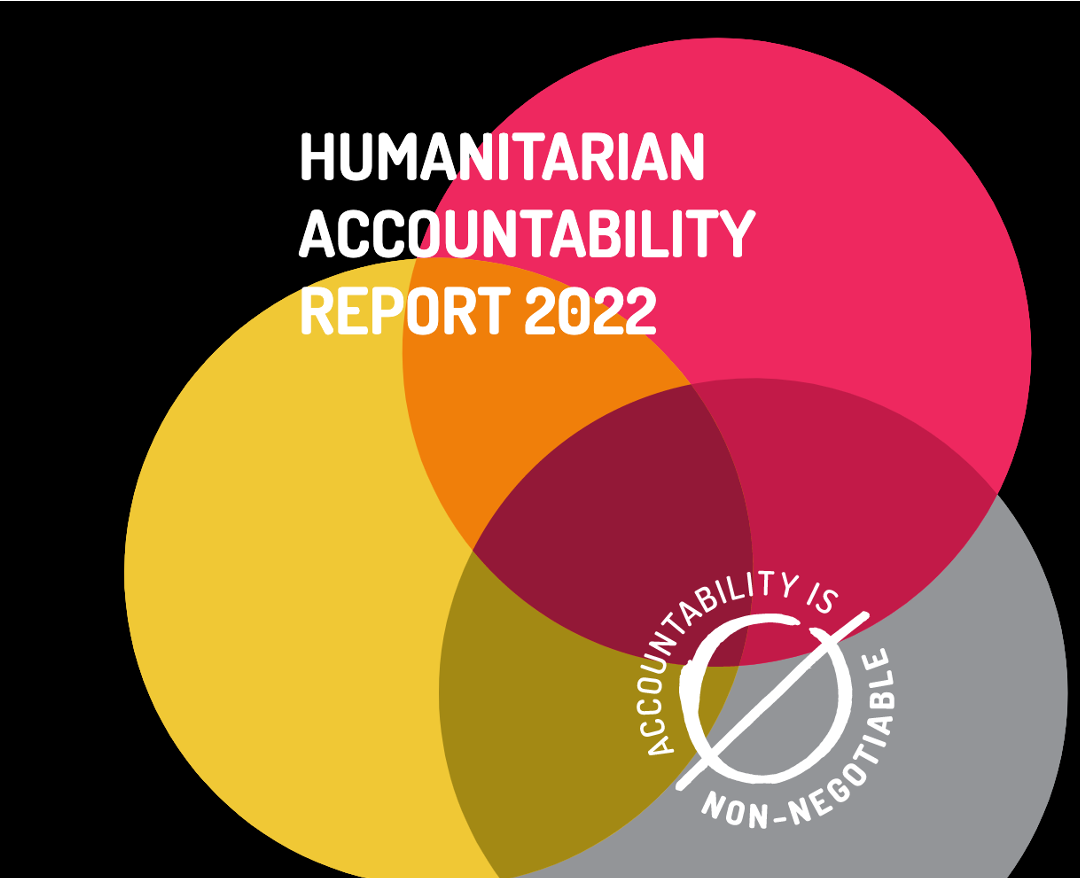Aid system not meeting its commitments to people in crisis
The aid system is falling short when it comes to meeting our core accountability commitments to people affected by crisis. That is the stark finding from CHS Alliance’s new report Humanitarian Accountability Report 2022: Accountability is Non-Negotiable.
Despite our noble aims, across the aid system we are struggling to learn from and change for the people we set out to help.
This is a dangerous way of working. It risks already vulnerable people being exploited or abused as we’ve seen yet again with recent news of widespread sexual abuse allegations against aid workers in South Sudan.

The 2022 Humanitarian Accountability Report looks at seven years’ worth of accountability data, draws on system-wide studies and hears from experts on how well we measure up for those we serve.
The report can teach us some important lessons on the state of accountability across the aid system, and what changes are needed to deliver on our shared commitments – the Core Humanitarian Commitments on Quality & Accountability (CHS).
Here are my five key lessons from the report:
Lessons in a line 1: Overall the aid system is falling short at meeting our core commitments to people affected by crisis.
When looking at the aggregated accountability data and system-wide analysis, we are not meeting fully meeting the Commitments of the CHS. This isn’t looking at any one single organisation, but overall, it’s clear – the notion of accountability as non-negotiable, is not just the current reality for people facing crisis today.
This is a stark and sobering finding.
Especially when we see that the lowest scoring CHS Commitment of all is on welcoming and addressing complaints – facing up to when things go wrong and changing how we work, rather than ignoring our problems.
Lesson in a line 2: The aid system is better at policies than people.
The report shows that organisations are better at putting good policies and internal process in place, as well as coordinating with other similar organisations. However, they struggle with listening to, learning from the people affected by crisis.
This is a dangerous way of working. It risks vulnerable people being exploited or abused, damages attempts to localise aid, hampers reaching every person and mars environmental responses.
Lesson in a line 3: There is clear evidence of hope – organisations that measure and monitor against the CHS over time become more accountable to the people they serve.
The report finds that organisations who monitor and measure their work repeatedly against a concrete accountability framework – the CHS – over several years show clear improvements in how they work with people affected by crisis.
And these improvements are tangible. People affected by crisis become more involved in the decisions that affect their lives, have greater awareness of their rights, are treated with greater equality and, as a result, receive assistance that is more dignified and effective.
Lesson in a line 4: The strongest gains made by organisations that use the CHS over the long term are for the biggest system failing.
We see the greatest progress over time in the areas that the aid system struggles with most. The dedicated aid organisations that use the CHS consistently over the years now communicate better, listen more, design their programmes in a more participatory way and are more welcoming and responsive to feedback or complaints from those they serve.
Promisingly, tracking accountability data over the long-term shows that organisations using the CHS have made progress against one of the biggest failings that shames the aid system – sexual exploitation and abuse of vulnerable people by aid workers.
Lesson in a line 5: Leaders from across the aid system need to collectively increase political will and action on accountability.
To build momentum around this promising evidence aid leaders need to take up CHS Alliance’s Accountability Manifesto:
- The views of crisis-affected people to direct all work.
- Strong and vocal leaders to drive a whole-of-organisation approach to accountability.
- Greater recognition of how local and national leadership accelerates accountability.
- Collaborative and collective approaches to make accountability to people affected by crisis a real non-negotiable across the whole aid system.
As the world faces up to increasing interconnected crises, our focus must be on the commitments we have made, so responses are based on the experience and power of the more than 274 million people affected by crisis globally. This is non-negotiable.
Hear from the accountability experts and explore the data trends on the dedicated HAR2022 microsite. Or dig in and read the full report. But don’t stop there. We need you to share these key lessons with those you work with, discuss them with those you disagree with and tell us what you think we should do about it.

